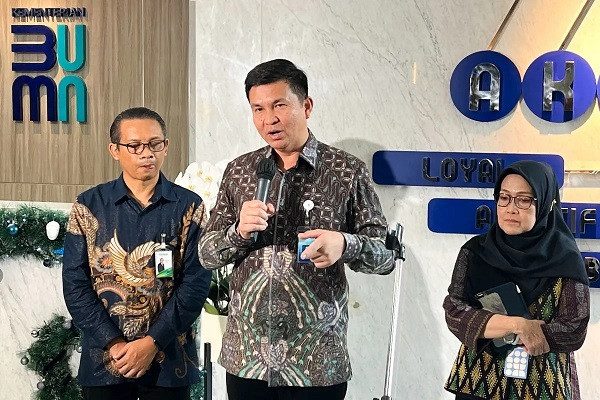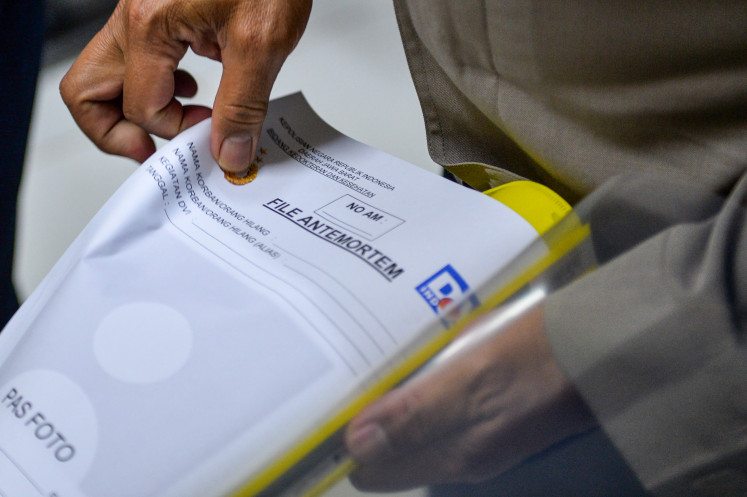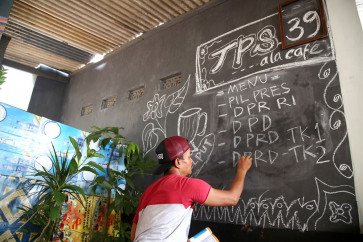Analysis: Prabowo regime rewriting national “his-story”
Change text size
Gift Premium Articles
to Anyone
 Nadi Kusnadi, a resident of Leuwinanggung, Depok, in West Java, decorates polling station 39 to resemble a cafe, a day before the simultaneous presidential and legislative elections. (The Jakarta Post/P.J.Leo) (The Jakarta Post/P.J.Leo)
Nadi Kusnadi, a resident of Leuwinanggung, Depok, in West Java, decorates polling station 39 to resemble a cafe, a day before the simultaneous presidential and legislative elections. (The Jakarta Post/P.J.Leo) (The Jakarta Post/P.J.Leo)
W
hen the government completes rewriting the official national history, scheduled for August, do not expect too much change on topics that are too politically sensitive to be written in a more honest and objective way. The more recent history will likely be much trickier to write, and to read, for that matter, as many of the (bad) actors are still alive.
Critics see this more as a political project, some even suggesting that it is aimed at giving legitimacy to the current regime of President Prabowo Subianto. The timing is clearly political with Cultural Minister Fadli Zon promising to complete the revision on time for the Aug. 17 Independence Day, as an 80th anniversary gift from the government.
Launched in January, the team of more than 100 historians and archaeologists recruited for the project has seven months to rewrite the entire national history, going all the way back to prehistoric time and all the way through 2024. That is too short a period for such an ambitious undertaking.
Fadli revealed some of the changes that will come with the revision, but also some that will not be altered despite controversies surrounding them.
One major change in the official history, one that is already widely discussed and accepted by many, is that Indonesia was never colonized by the Netherlands for as long as three-and-a-half centuries. The first Dutch traders arrived before the turn of the 17th century in search of spice, but they conquered what is now Indonesia over a long stretch of time. Sumatra only formally became part of the Dutch East Indies towards the end of the 19th century.
That perspective worked its way into national consciousness in the wake of Indonesia’s independence in 1945, and it had worked well to galvanize the revolutionary spirit important at the time. Seen by some as a consolation prize for the former colonial masters, a popular line found in many school history textbooks in the mid-20th century was that “three-and-a-half years of Japanese occupation was worse than three-and-a-half centuries of Dutch colonialism,” which is another myth.
Fadli said rather than talking about Dutch colonialism, the new official history would highlight armed resistance against Dutch forces trying to impose their rule in the region.


















